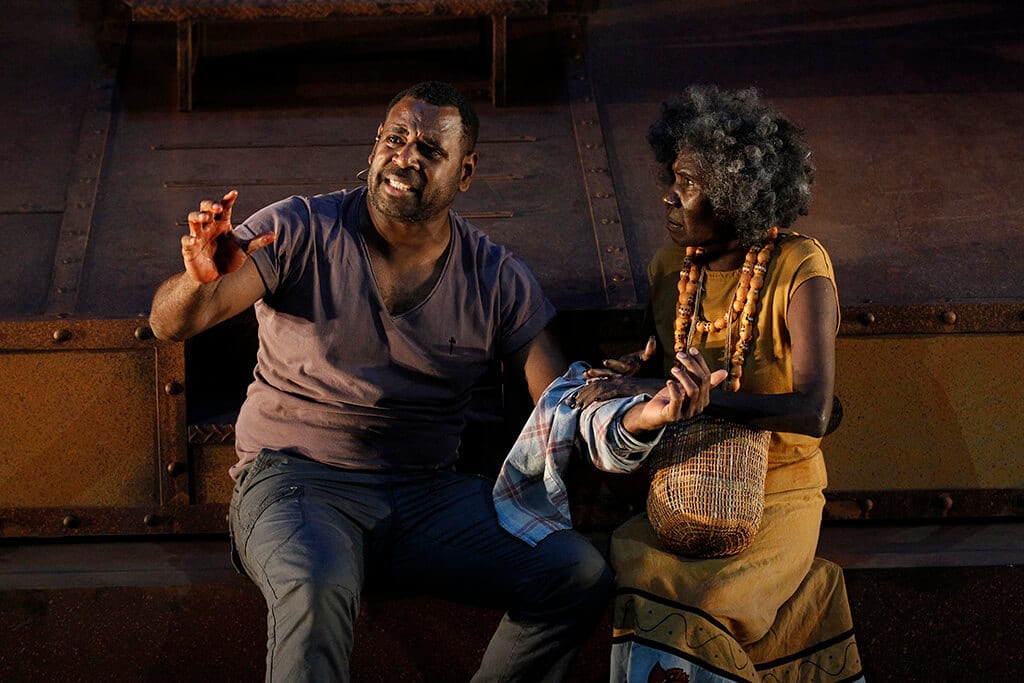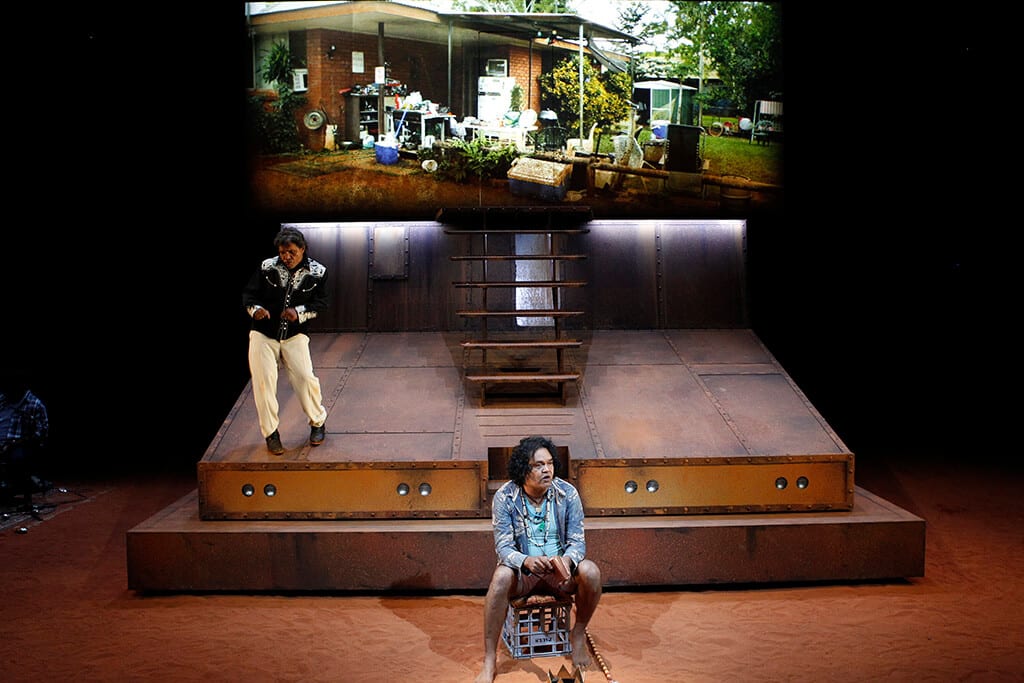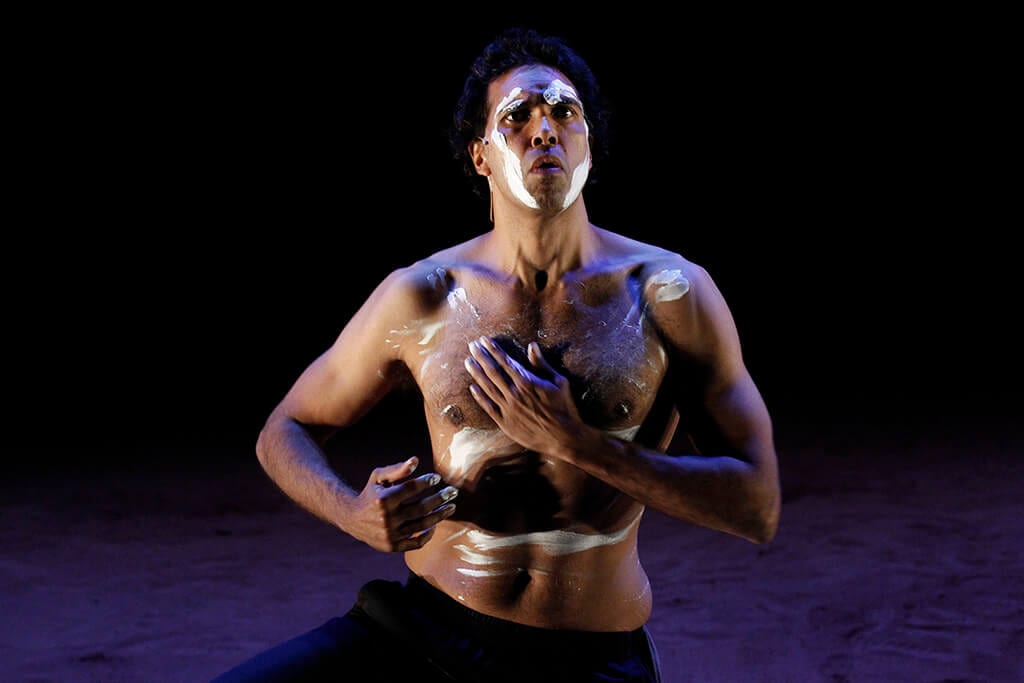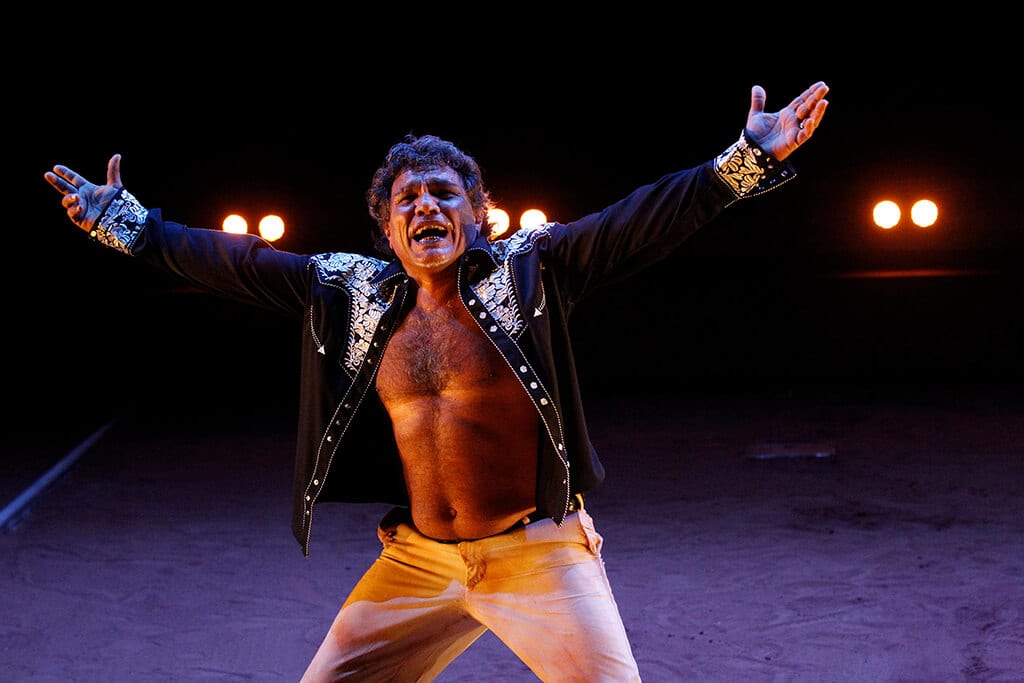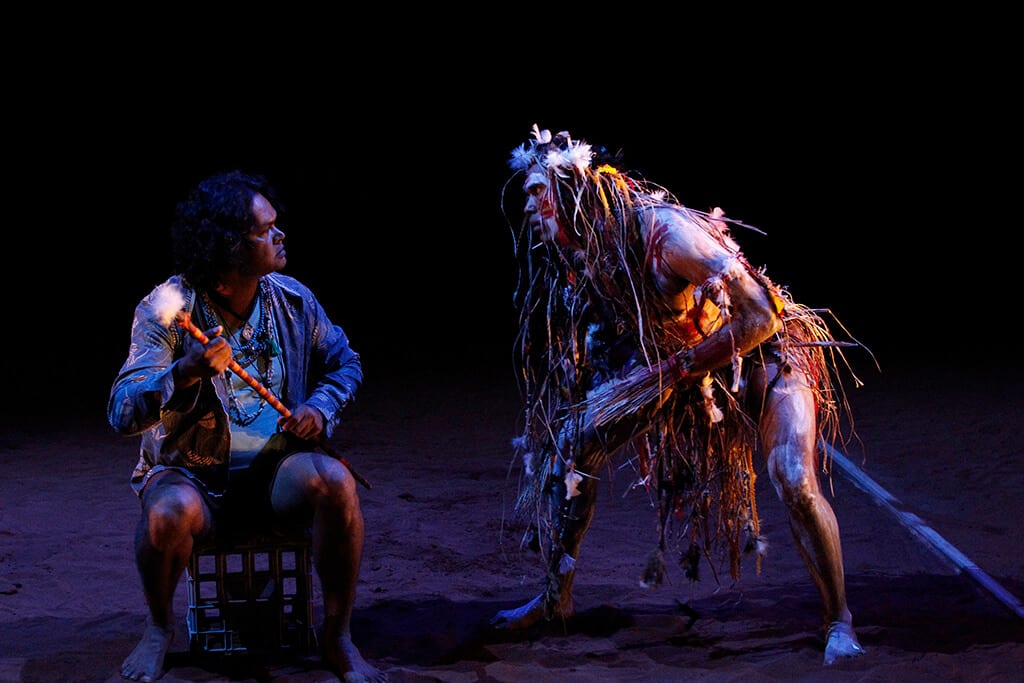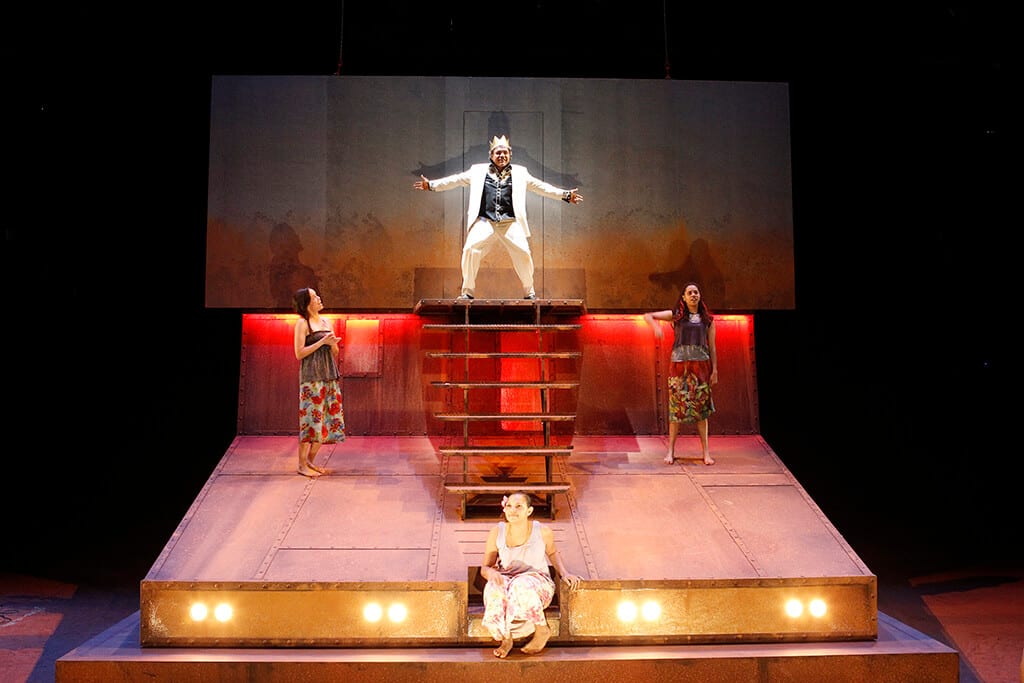Michael Kantor and Tom E Lewis embark on a very ambitious idea: transforming King Lear into an aboriginal version. Such a thing is no easy feat, especially for such a grave tragedy, and it feels like some of the bard’s brilliant eloquence is lost in translation.
Kantor recalls his first meeting with Lewis, and the genesis of The Shadow King. In his home town of Katherine, Lewis observed events in his community that bore a resemblance to the action in King Lear: territorial arguments, disputes of blood and legitimacy, jealousy and greed running rampant. And so Lewis arrived at an idea, which he said to Kantor: “It’s a tragedy, just like that King Lear story of yours.” The seed was sown and a new play was eventually born, with indigenous Kriol dialect replacing a lot of the English, set against the backdrop of the red sand Australian outback.
The reason I take issue with this production is because of the execution. It is certainly not because of the premise: on paper it sounds very interesting and promises a rich retelling, which I was very excited to see, but the reality is not quite up to scratch. The language is often difficult to follow, so if you are not familiar with the original plot you can get lost. The problem is a question of patience: whether you are bothered or not to pay attention to the dialogue. Obviously it’s not completely impossible to grasp, but it does require constant effort: closer attention to body language, the snippets of English and so on.
The play has good pockets of comedy in the action. For instance, the Fool (Kamahi Djordon King) provides a lot of comic relief, prancing around the stage, pointing out Lear’s mistakes and generally joking about. In The Shadow King the Fool has a more developed role than in King Lear, he even introduces the play, and frames the events with his narration. The fool sings too, and there is a live band to accompany: kudos to the production for this, it is a really nice touch. But the music is somewhat problematic: Lear (Tom E Lewis) is occasionally given to song, but it’s kind of like watching your dad drunkenly attempt karaoke. Lewis’s Lear is more of a comic figure, and I struggled to see him in a tragic light, or appreciate his tender and despairing moments with proper gravity.
Gloucester, now a duchess instead of a duke, or rather tribeswoman, is blind and pathetic. She is betrayed by Edmund, left ruined by her situation. The end is a similar scene to the original: lots of misery and death. Yay. However, as the characters meet their depressing fates, I find myself without that pang of sadness. Perhaps the language means there isn’t a strong enough connection to the storyline, which is to say there’s no great emotional resonance with their journeys. For me this play just doesn’t quite hit the mark.

